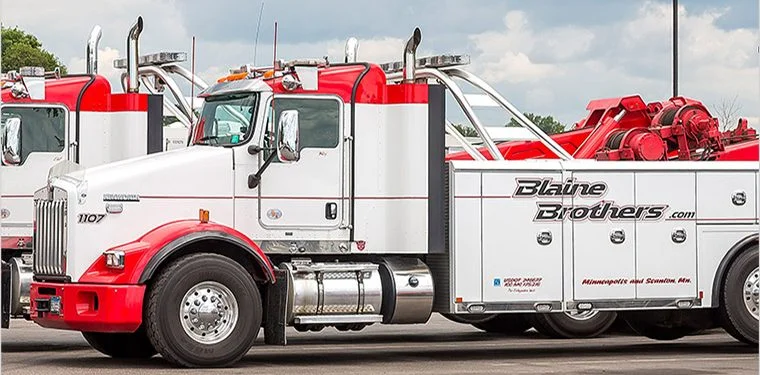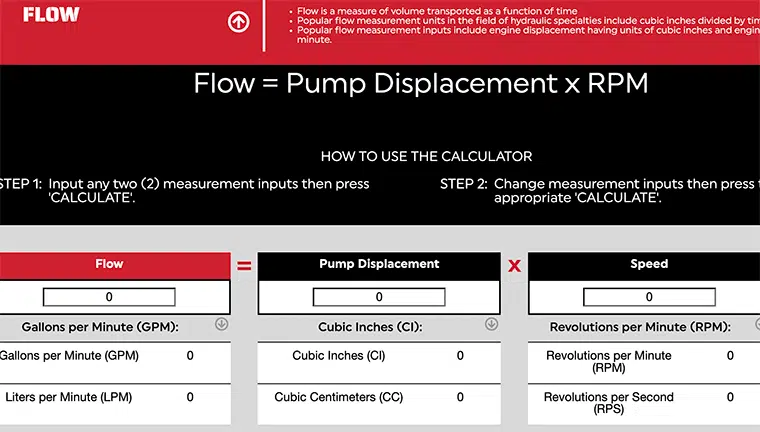Heavy-duty trucks are essential to keeping our nation moving. They are responsible for ensuring a consistent supply of goods, completing infrastructure projects, and providing everyday community services. A large portion of tasks these heavy-duty trucks complete would be rendered obsolete if it weren’t for the fluid power and hydraulic systems that allow them to perform their necessary functions.
The Role of Heavy-Duty Trucks
Across the United States, there are over 600,000 construction employers with many of them relying on heavy duty trucks to complete their daily tasks. This includes new builds, renovations, and infrastructure enhancements. For these projects to be successful, they must rely on heavy-duty trucks to haul material, excavate, and lift. Excavators, dump trucks, mobile cranes, and concrete pump trucks represent a few of the many heavy-duty trucks needed to complete these jobs.
While each of these trucks and operations are different, they all rely on the same type of power source to operate, a hydraulic power unit. Without these crucial hydraulic fluid power systems, the trucks would ultimately be useless for their specific roles.
The ability of garbage trucks, trash compactors, lifting dump trucks, and even drum rollers to perform their necessary function is a direct result of the power generated by these hydraulic systems. It’s important to discuss the different vital systems that make these fluid power systems function.
All About Hydraulic Systems
In the simplest terms, a hydraulic system uses fluid to create force or movement. In a basic cylinder hydraulic system, the movement is restricted to the length of the cylinder. Unfortunately, this very basic system is too simple for heavy-duty trucks to complete their jobs. To exert the maximum amount of force to generate lift, a more robust system needs to be used. This system can be broken down into three parts.
1. Wet Line Kit
The wet line kit refers to the hydraulic hoses, tanks, reservoirs, control valves, and pumps. These kits are connected to a power take-off system and can be used in many different applications. They can be found on several heavy-duty trucks, including:
- Dump Trailers
- Crane or Boom Trailers
- Semi-Trucks
- Additional Custom Truck Applications
Wet line kits are heavily customizable to fit individual truck needs. There are two types of wet line kits:
- Two-Line Kit – The fluid travels back and forth along the same hose, with no separate return hose. This is a simple wet line kit and can be used in dump trailers that are used intermittently. However, the fluid cannot be run through a filter before reentering the system, therefore causing increased wear and tear on the pump and hydraulic hoses.
- Three-Line Kit – This utilizes a separate return hose for the hydraulic fluid. This allows the dump trailer to be operated consistently. The returning fluid can be passed through a filter and cooled before re-entering the reservoir. This reduces wear and tear on the overall system and the cooler temperatures decrease the chances of pump failures.
2. Power Take-Off
The power take-off (PTO) is what ultimately drives the hydraulic system. It is attached to the wheelhouse and is powered by the drivetrain. When engaged, the PTO produces power that can operate a hydraulic system but also several other applications, including:
- Air Compressors
- Generators
- Pneumatic Blower
- Vacuum Pump
A PTO can be included in a wet line kit or can be installed individually. It depends on the individual truck’s needs.
3. Hydraulic Reservoir for Trucks
This reservoir holds the residual hydraulic fluid that is drawn in by the hydraulic pump. The size of the tank depends on the need of the truck’s system. If the truck needs to exert continual force it will need to have a tank large enough to provide a continuous source of fluid to the pump.
The high pressure causes the fluid to heat. The extreme temperature can cause parts of the hydraulic system to fail. The reservoir allows for heat exchange through the walls of the drum. This gives adequate time for the dissipation of heat before the fluid makes its way back through the system.
Hydraulic System Installation Professionals
If you are in need of a hydraulic system installation, repair, or you’d like additional information about custom hydraulic power units, the team at Hydraulic Specialty Inc. has you covered. With years of experience, you can trust us with all your hydraulic needs. Contact us today!
–


